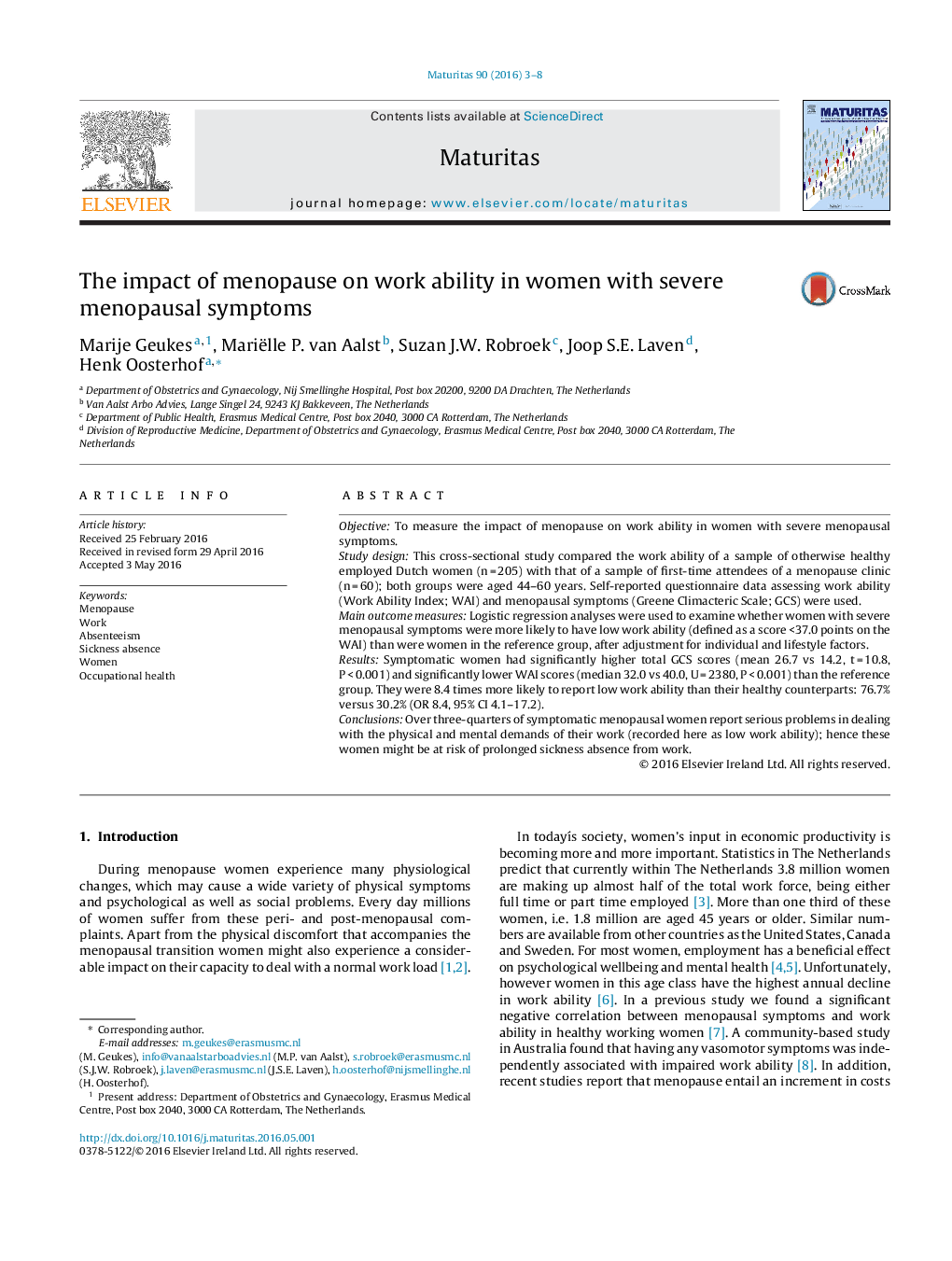| Article ID | Journal | Published Year | Pages | File Type |
|---|---|---|---|---|
| 1916967 | Maturitas | 2016 | 6 Pages |
•In today's society, many women will be working throughout their menopausal transition.•Menopause may cause a wide variety of physical symptoms as well as psychological and social problems, some of which may affect their work.•Over three-quarters of women with severe menopausal symptoms report a low ability to undertake work.•Women with severe menopausal symptoms are 8.4 times more likely to report a low ability to undertake work compared with age-matched women not diagnosed with menopausal complaints.•Women with severe menopausal symptoms are at risk of prolonged sickness absence from work.
ObjectiveTo measure the impact of menopause on work ability in women with severe menopausal symptoms.Study designThis cross-sectional study compared the work ability of a sample of otherwise healthy employed Dutch women (n = 205) with that of a sample of first-time attendees of a menopause clinic (n = 60); both groups were aged 44–60 years. Self-reported questionnaire data assessing work ability (Work Ability Index; WAI) and menopausal symptoms (Greene Climacteric Scale; GCS) were used.Main outcome measuresLogistic regression analyses were used to examine whether women with severe menopausal symptoms were more likely to have low work ability (defined as a score <37.0 points on the WAI) than were women in the reference group, after adjustment for individual and lifestyle factors.ResultsSymptomatic women had significantly higher total GCS scores (mean 26.7 vs 14.2, t = 10.8, P < 0.001) and significantly lower WAI scores (median 32.0 vs 40.0, U = 2380, P < 0.001) than the reference group. They were 8.4 times more likely to report low work ability than their healthy counterparts: 76.7% versus 30.2% (OR 8.4, 95% CI 4.1–17.2).ConclusionsOver three-quarters of symptomatic menopausal women report serious problems in dealing with the physical and mental demands of their work (recorded here as low work ability); hence these women might be at risk of prolonged sickness absence from work.
